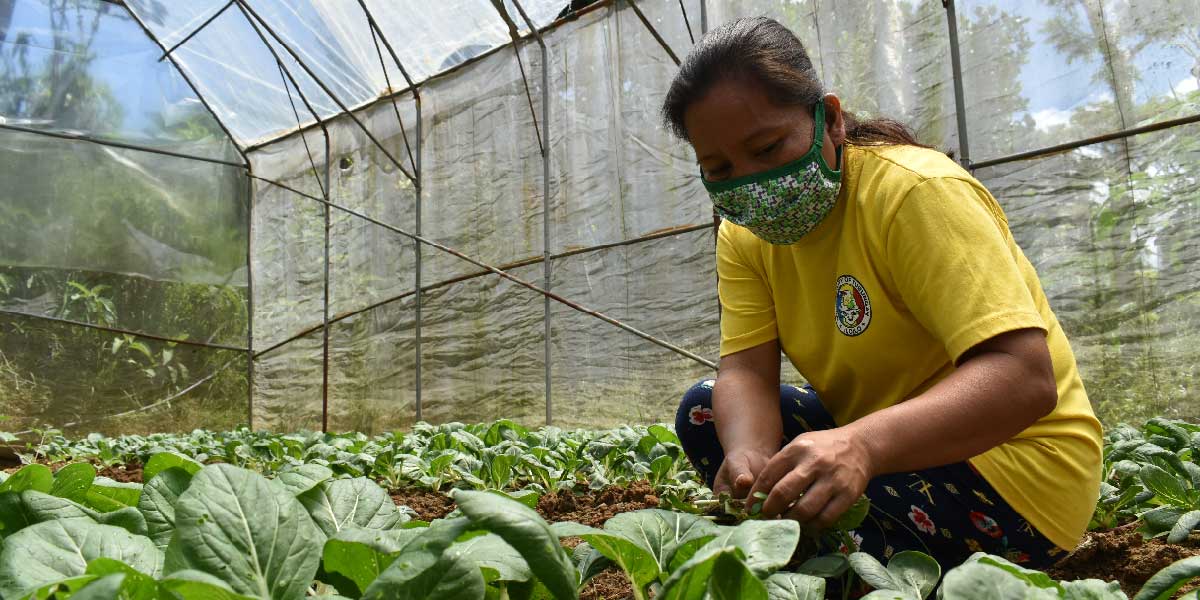
By Joseph B.A. Marzan
The regional heads of the Department of Agriculture (DA-6) National Economic and Development Authority (NEDA-6) on Friday said the agriculture sector will sustain Western Visayas’ economy amid a major slump due to the coronavirus disease 2019 (COVID-19).
The Philippine Statistics Authority-Region 6 (PSA-6) on Thursday, reported that Region 6’s economy plunged with a -9.7 percent contraction in 2020, its lowest since 2017.
The slump resulted in the closure of 204 establishments which displaced 2,112 workers.
The closures were mainly due to lockdowns and other stringent regulations imposed by the national and local governments which affected transportation, consumption, and spending.
Almost all economic sectors experienced contractions save for the agriculture, forestry, and fisheries (AFF) sector, which showed a 6.2 percent growth last year.
The AFF sector accounted for 19.9 percent of the region’s economy.
NEDA-6 OIC-Regional Director Meylene Rosales attributed strict community quarantine guidelines to the significant blow to the service and industry sectors in the region, even as she called the agriculture sector’s growth a “silver lining” amid the economic setback.
Rosales told Daily Guardian on Friday that the sector’s 2020 growth should push the government and the private sector to shift their focus towards the agriculture sector.
“This is an opportunity. It’s good to take a look and focus our government’s attention on the agriculture sector, and even that of the private sector which can invest in this,” Rosales told Daily Guardian on Air via Aksyon Radyo-Iloilo.
Up until 2020, the AFF sector has been “laggard” due to the slow consolidation of the sector.
Rosales cited that agriculture and forestry reported significant growth, but the slow growth in fisheries affected the industry’s overall performance.
Despite this, she said that the region’s growth in the agriculture sector, which is the biggest nationwide last year, exposed the opportunity for greater focus.
“In the 2020 figures, it appeared that Western Visayas, out of the 17 regions in the country, has shown the biggest growth in agriculture. That shows that there is hope in the agriculture sector, that is because we are rich in natural resources. We have potentials in palay, pork, and marine products,” she said.
Rosales said the Department of Agriculture (DA) must up its implementation and monitoring of projects in the communities.
“When the DA gives seedlings, that’s many, and that translates to a lot of money. But the there question is, when they give out the seedlings, is there land to plant that on? There’s technology, we can now do urban gardening, vertical gardening, but the problem there also is the attitude or the willingness to tend to the plants,” she said.
Rosales also noted the concept of agriculture being “not sexy” to some stakeholders, especially the youth, despite the availability of agricultural techniques and assistance.
But she said people are slowly coming to terms with agriculture, citing farms developed and managed by friends, which contributes to job generation and food security.
“Nowadays, when we look at agriculture, it’s not ‘sexy’. Our concept of agriculture is about going down in the mud, being dirty and sweaty, and having back pain. So, when the younger ones decide which programs they would take in college, only a few choose agriculture courses. But the good news there is that we are slowly being awakened by the importance of agriculture.”
Rosales also suggested that make agriculture products must be more accessible to the public.
“We cannot avoid that the [early] implementation of border controls also affected farmers and fisherfolks in restrictions. We have to also help our local producers in agriculture to sell their own products. In our own way, all of us must patronize local products. These are small traders getting from our local farmers, so it is our own small way of helping our own,” she said.
SALUTE TO WORKERS
DA-6 Regional Executive Director Engr. Remelyn Recoter viewed the agriculture sector’s contribution to Western Visayas’ economy as a “testament to the hard work of workers in the AFF sector” amid the COVID-19 pandemic.
Recoter also cited government aid such as Republic Act Nos. 11469 (Bayanihan 1) and 11494 (Bayanihan 2) and its ‘Binhi’ programs that provide seedlings under its regular program and Rice Competitiveness Enhancement Program (RCEP).
“We are happy because even between the pandemic, our farmers, fishers, and foresters have continued their activities. They did not fear,” Recoter told Daily Guardian on Air.
She mentioned various support programs to the agriculture sector which will continue even after the COVID-19 pandemic, including:
– Providing certified seeds to farmers by the Philippine Rice Institute;
– Machines to be distributed to farmers by Philippine Center for Postharvest Development and Mechanization (PhilMech);
– Trainings under the Technical Education and Skills Development Authority (TESDA) and the Agricultural Training Institute (ATI); and
– Financing programs for the agriculture sector by the Landbank of the Philippines (LBP) and the Development Bank of the Philippines (DBP).
She also cited DA’s approach in making agriculture “sexy” to the public through professionalization.
This covers not only agricultural extension workers, the agricultural sector’s “frontliners” in local government units, but also continuous engagements of youth and women to join the sector.
She said that the sector will expect “significant” changes in 2022 as part of the implementation of the Supreme Court’s Mandanas ruling which allocated more funds to local governments.
The 2018 ruling increased shares of LGUs from the national budget through the Internal Revenue Allotment which are revenues from national taxes.
Recoter said the devolution of some of the national government agency and regional office functions to the local government units (LGUs) will bolster agriculture as well.


















